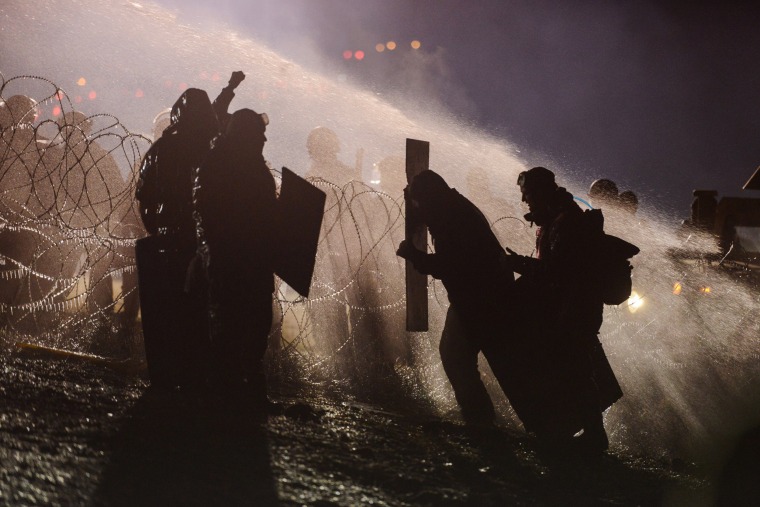BISMARCK, N.D. — A federal grand jury in North Dakota is looking into a violent November clash between Dakota Access pipeline opponents and officers in which a woman was seriously injured.
Steve Martinez, 42, a pipeline protester from Williston, has been ordered to testify regarding the arm injury of Sophia Wilansky, 21, of New York, according to his attorney, Ralph Hurvitz. Protesters maintain she was injured by a grenade thrown by police, while authorities say she was hurt by a small propane tank that protesters rigged to explode.
Related: Pipeline Protesters Say Police Nearly Blew Off Woman's Arm
Grand jury proceedings are closed to the public, but Hurvitz confirmed the nature of Martinez's subpoena and supplied a copy of a motion he filed to quash it. The document states that "the subpoena further directs him (Martinez) to bring with him information related to the injury of Sophia Wilansky on Nov. 21, 2016, including, but not limited to: photos/SD cards; written statements; any other information within possession."
But Hurvitz's motion was denied Wednesday in a closed hearing. U.S. Attorney Chris Myers said he could not comment on the case because grand jury proceedings are secret.
Martinez had been scheduled to testify before the grand jury later Wednesday, but Hurvitz said the matter was delayed to Feb. 1. Martinez made a statement outside the courthouse, saying he would refuse to cooperate and was prepared to go to jail if found in contempt of court.
"Losing my freedom is a small price to pay for keeping my dignity and standing up for what's right," he said.
He declined to say what his role was in the clash that occurred late Nov. 20 and early Nov. 21, when protesters tried to push past a long-blocked bridge on a state highway near the protesters' main encampment along the pipeline route in southern North Dakota. They were turned back by authorities using tear gas, rubber bullets and water sprays. Police said protesters were throwing objects including rocks, asphalt and water bottles at officers. One officer was hit in the head.
About 40 protesters rallied outside the courthouse in support of Martinez, and court officials locked the courthouse doors.
Pipeline opponents worry the four-state, $3.8 billion project will harm the environment. Texas-based pipeline developer Energy Transfer Partners disputes that and says the pipeline will be safe.
